Heavy Rain: the David Cage interview
Auteur talks permanent death, emotional buildup and what went wrong with Indigo Prophecy
GR: Heavy Rain’s been described as a “film noir thriller.” What do you see as the key elements of film noir, and how do you plan to replicate them in the game? Are there any specific films that influenced the production?
DC: I am sure players will find many references to movies, TV series or novels in Heavy Rain, but there was no conscious influence. This script is the first thing I write for a game, [and it] comes from my personal experience, things I have lived or felt. It made for me a huge difference in the creative process as I was writing about things I knew instead of trying to imagine what it is like to be a hero saving the world.
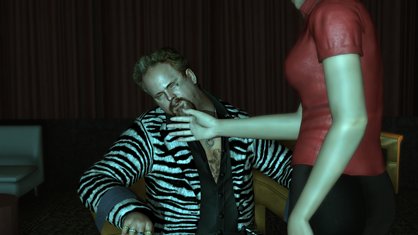
I hope more and more interactive writers will see themselves as “authors” instead of “level builders,” and try to tell about their own lives, their emotions, their visions. I am convinced that it would generate much more interesting games. I work on emotion using narrative, but there are of course many different ways of creating interactive emotional experiences. The future of this industry may very well be in writing about emotional experiences.
GR: So far we’ve seen two of the four main characters, FBI profiler Norman Jayden and journalist Madison Paige. Without revealing too much, is there anything you can tell us about the two characters we haven’t seen yet?
DC: The last character we are going to reveal is the first one to appear in the game. It is his story that really drove me in the writing of Heavy Rain. He is not your typical main character; rather, he is a more complex individual with doubts and weaknesses, and a strong emotional arc through the story. If the tag line of the game, “how far are you prepared to go to save someone you love?” applies to all four characters, he is the one having the strongest take on this. The other character is not the typical video game hero, either… but this one may well be a player favorite.
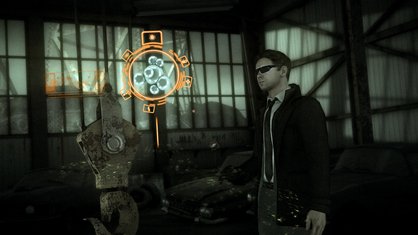
GR: How will the game be structured, in regard to the four characters? Does each character one simply get their own undivided “chapter” of the game, or will players revisit characters (assuming they’re still alive) after a different character’s story has begun?
DC: The game is structured like a movie, telling the interlaced stories of four characters. The player will play with these characters scene after scene. What I like about this system, that I started to experiment with [in] Indigo [Prophecy], is the fact that the experience is quite varied: you leave a scene and you discover a new set with a new character and something else to do taking advantage of who you are. It makes the game richer and more surprising by allowing you to tell the stories of several characters at the same time. You are sad to leave them, but glad to play with the next one.
Sign up to the GamesRadar+ Newsletter
Weekly digests, tales from the communities you love, and more
GR: The idea of ending a character’s story after they die is a bold one; what made you decide to structure the game that way?
DC: Game Over is a very frustrating game convention. In short, it means “if you were not good enough or did not play the game the way the designer intended you to play, you should play again until you do it right.” What kind of story could a writer tell where the characters could play the same scene ten times until the outcome is right?
I wanted to solve both issues, the gameplay frustration and the narrative dead end, by seeing if I could get rid of these sequences and treating death like an event in the story that would not prevent it from continuing. Some movies and novels have done that in the past, I thought it was worth a try. ;-)
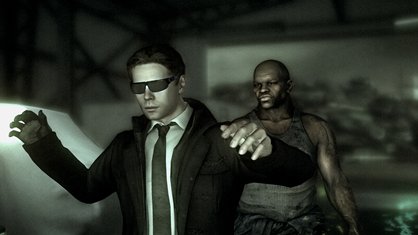
GR: Some gamers are guaranteed to cry foul if they can’t go back to “rescue” dead characters and conclude the story the “right” way; with that in mind, what do you see as the benefit to the player from taking the “die and that’s it” approach? Is there one?
DC: Interacting means making a decision. Making a decision means opening a door and never knowing what was behind the other one. There is no “right way” of playing the story, as there is no “wrong” story. There are just different stories, telling different things in different ways. There will be a benefit for the player to play with the consequences of his actions: he will create a story that is really unique to him. Even if he dies, he will see things that someone who has kept the four characters alive will miss.
GR: If a character dies, will that make the investigation more difficult or differently structured for the other characters? Or will it just close off that part of the story to the player?
DC: I try to propose a good and interesting story whatever happens, including if some characters died. The story changes depending on what is going on, as each character has a specific way to discover the Origami Killer and some specific information about him. It will also very differently structure the game for other characters. I cannot really say much more…
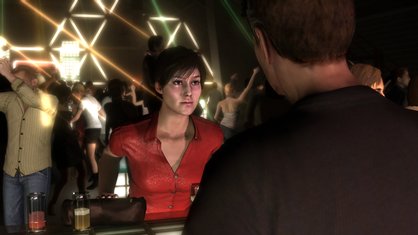
GR: You talked about this a bit during E3, but I’d like to revisit it for the benefit of our readers: When it was released in 2005, a lot of criticism was leveled at the final act of Fahrenheit/Indigo Prophecy and what many saw as a sharp departure from the tone that the game set early on. Looking back, what, if anything, do you think went wrong? Are you doing anything to avoid similar criticism with Heavy Rain?
DC: Indigo did some things well, I think, some others not that well. I am a little bit frustrated that some people only remember what did not work. The end was rushed, because the rest of the game required so much effort and attention that we spent less time on the last scenes. The story I wanted to tell required more scenes to be developed and explained in a satisfying way, and time was just missing to do that.
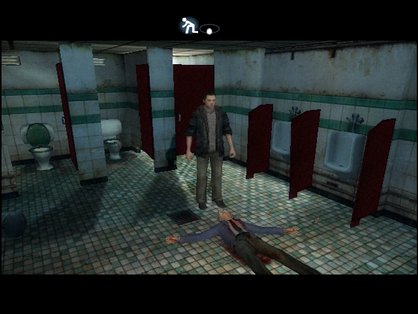
Above: Indigo Prophecy might have fallen apart toward the end, but until then it was amazing
I also felt, towards the end of the writing, that I was not doing a videogame: there were no super powers, no evil guy, no world to save, so I added all in the last scenes. I realized later that we don’t need that anymore. So when I started writing Heavy Rain, I took all the time I needed to write the script, I got rid of any supernatural elements and decided to write only about real people in real life having real problems. I accepted the fact that I was not doing videogames anymore, and I feel much better about it.
Aug 12, 2009


Want to witness the future of gaming? Look no further than these 20 unreleased titles

Delay! Cancellation! Disappointment! A sad look at everything you WON'T be playing this year

Shark Week concludes with the most JAWful tales ever told



